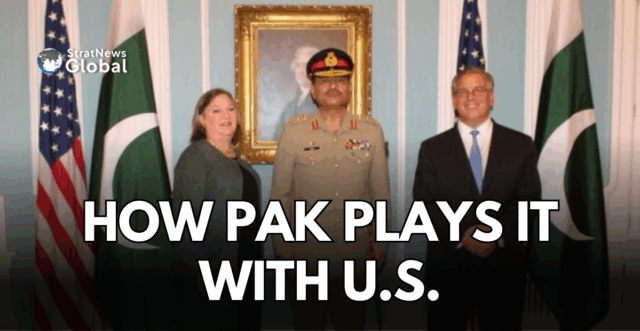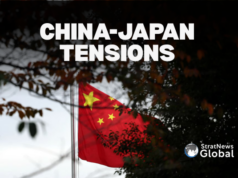It’s the season of threats: there was Field Marshal Asim Munir’s nuclear sabre rattling from the US during an ethnic Pakistani diaspora event, and now his civilian major domo, Prime Minister Shehbaz Sharif, has thrown in his.
On Tuesday, at an event in Islamabad, he said, “I want to tell the enemy that if you threaten to hold our water, then keep this in mind that you cannot snatch even one drop of Pakistan’s … you will be again taught such a lesson that you will be left holding your ears.”
Sharif’s threat was issued from Pakistani soil, from where countless threats against India have been issued in the past, so no big deal there. But Munir’s use of US soil to threaten India with nuclear annihilation rankles, more so the complete absence of any clarification from the Trump administration.
Ambassador Sharat Sabharwal, former Indian High Commissioner to Pakistan, says, “Sometimes Americans leverage India-Pakistan issues to promote their own interests in this region. Some of the statements that Trump makes are to exert added pressure on us in the context of a trade deal.”
Pakistan watcher Tilak Devashar believes the US need for Islamabad’s services in the context of Iran could account for the wining, dining, and latitude given to Munir. Looking back, Washington has always been more comfortable dealing with generals than elected politicians, even when the perfidy of those generals has been evident.
Witness Pakistan running with the hare and hunting with the hounds throughout the period of the US involvement in Afghanistan. From Oct 2001 to Aug 2021, more than 2,400 US military personnel were killed during operations against the Taliban, which had arms, equipment, and training coming from Islamabad.
But that also defines the nature of the US-Pakistani relationship, which has always been transactional, notes Ambassador Sabharwal.
“Pakistan is a good fit for Trump in terms of everything he is looking for: to expand his business interests in cryptocurrency, build on America’s need for mineral wealth such as copper and gold or and even rare earth deposits in Balochistan.”
In return, Asim Munir gets what every US administration has given Pakistan’s generals: a slow wink when it comes to India, meaning a free hand.
Warns Sabharwal, “Whenever Pakistan gets US support, it is a little more sure that no matter what happens, the Americans will try and bail them out. Emboldened by this, Pakistan may become more adventurous and ramp up terror against India.”
Enough food for thought for Prime Minister Modi, who, reports say, is likely to attend the UN General Assembly session next month in New York. Could that include a risky sit-down with Trump (remember what happened to Zelenskyy) or the safer option of a phone call?





